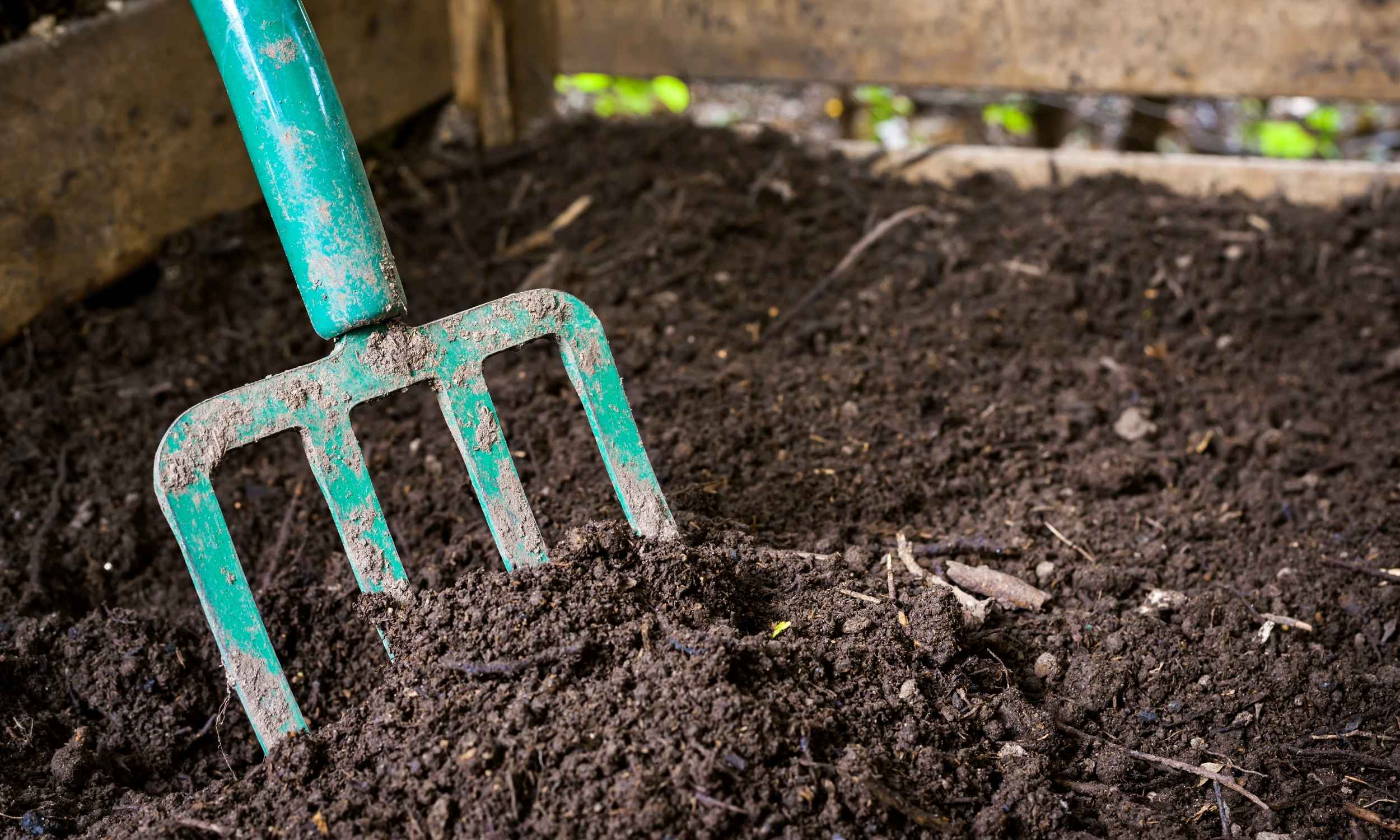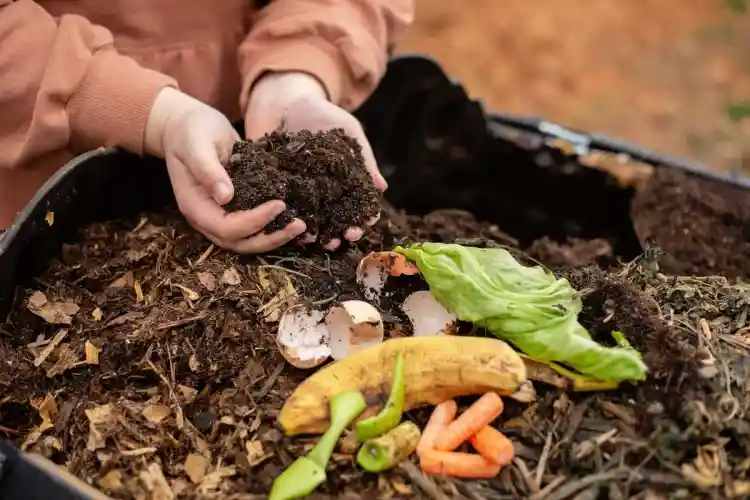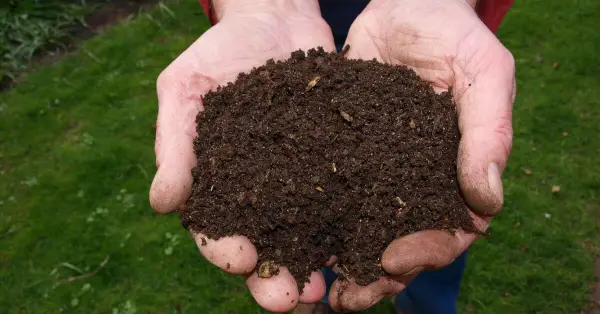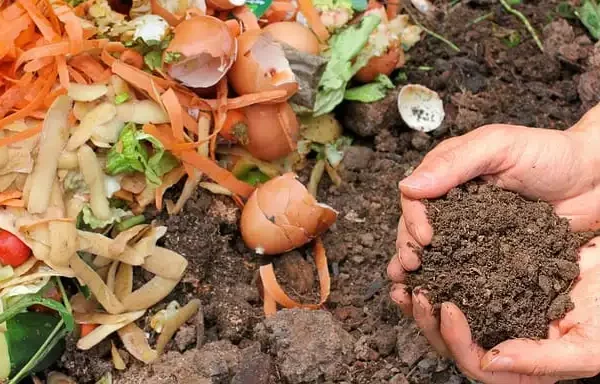Importance of Properly Finished Compost
Enhanced Soil Health: Well-made compost improves soil structure, promotes nutrient retention, and enhances microbial activity, fostering a healthy growing environment for plants.
Sustainable Gardening: Utilizing compost reduces reliance on synthetic fertilizers and promotes sustainable gardening practices by recycling organic waste materials.

Monitoring Compost Maturation
Visual Inspection: Mature compost has a dark, crumbly texture and an earthy smell, indicating that organic materials have decomposed fully. It should be free of recognizable plant materials and pathogens.
Temperature Monitoring: During the composting process, temperatures rise as microorganisms break down organic matter. When the composting process is complete, temperatures stabilize and gradually decrease to ambient levels.
Factors Influencing Compost Maturation
Carbon to Nitrogen Ratio (C:N)Achieving the ideal balance between carbon-rich (browns) and nitrogen-rich (greens) materials is crucial for efficient composting. A C:N ratio of around 25-30:1 promotes microbial activity and facilitates decomposition.
Aeration and Moisture: Proper aeration and moisture levels are essential for microbial activity and decomposition. Turning the compost regularly and maintaining moisture levels around 50-60% ensures optimal conditions for composting.
Recommended Practices for Testing Compost Maturity
Germination Test: Sow seeds of fast-growing plants, such as radishes or lettuce, in a small amount of compost. If seeds germinate and seedlings grow normally, the compost is likely mature and safe for use.
Maturity Indicators: Look for specific signs of compost maturity, such as the absence of foul odors, presence of earthworms, and a crumbly texture. These indicators suggest that the composting process is complete.
Conclusion
Determining when compost is ready for use involves a combination of visual inspection, temperature monitoring, and testing methods. By following recommended practices and guidelines from reputable sources, gardeners can produce high-quality compost that enhances soil health and promotes sustainable gardening practices.
How long does it take for compost to be ready?
Compost can take anywhere from a few weeks to several months to be fully ready, depending on factors such as the composting method, materials used, and environmental conditions. In general, well-managed compost piles can mature in about 2 to 6 months.
What are the signs that compost is finished?
Finished compost is dark brown or black in color, has a crumbly texture, and emits an earthy, soil-like smell. It should be free of recognizable organic materials and pathogens.
Can you use unfinished compost in the garden?
While unfinished compost may still contain partially decomposed organic matter, it can be used in the garden as long as it is not too fresh or “hot,” which could potentially harm plants. Mixing unfinished compost with soil and allowing it to continue decomposing can also help mitigate any issues.
What happens if you use compost that isn’t fully decomposed?
Using compost that isn’t fully decomposed may result in nitrogen tie-up, where microorganisms continue to break down organic matter, depleting soil nitrogen levels and potentially causing nutrient deficiencies in plants. Additionally, unfinished compost may introduce weed seeds or pathogens into the garden.
How can I speed up the composting process?
To accelerate composting, ensure proper aeration and moisture levels, balance the carbon-to-nitrogen ratio of materials, and regularly turn the compost pile to promote microbial activity. Adding compost activators, such as manure or compost tea, can also help speed up decomposition.
What should I do if my compost is taking a long time to mature?
If composting is progressing slowly, consider adjusting the carbon-to-nitrogen ratio by adding more nitrogen-rich materials (greens) or improving aeration and moisture levels. Turning the compost pile more frequently or shredding bulky materials can also help facilitate decomposition.
Can I use compost that still has visible organic material?
Compost that still contains visible organic material may not be fully mature but can still be used in the garden. Incorporating unfinished compost into the soil and allowing it to continue decomposing will gradually improve soil structure and fertility.
What should compost smell like when it’s ready?
Finished compost should have an earthy, soil-like smell, indicating that organic materials have decomposed fully. Foul or ammonia-like odors may indicate anaerobic conditions or an imbalance in the compost pile.
Is it normal for compost to have a temperature change during the maturation process?
Yes, it is normal for compost temperatures to fluctuate during the maturation process. Initially, temperatures rise as microorganisms break down organic matter, then gradually decrease as composting nears completion.
Are there any tools or tests I can use to determine if my compost is ready for use?
Yes, you can perform a germination test by sowing seeds of fast-growing plants in a small amount of compost. If seeds germinate and seedlings grow normally, the compost is likely mature and safe for use. Additionally, visually inspecting the compost for signs of maturity, such as color, texture, and smell, can also help determine readiness.
- How to Prevent and Reduce Knee and Back Pain While Gardening - July 19, 2024
- Garden Myth: Compost tumblers make compost in two weeks - July 17, 2024
- How do you clean and care for garden tools? - July 16, 2024




